PYP Taught Curriculum

-
PYP Taught Curriculum
PYP Taught Curriculum
Those learning about the PYP sometimes ask “Is it a curriculum or an approach?” The answer is “both”.
The PYP curriculum is defined broadly to include an approach to teaching and learning, in recognition of the fact that, in practice, the two are inextricably linked. The taught curriculum is the written curriculum in action.
The PYP developers have set out to strengthen these links by developing a curriculum in which classroom practice, the taught curriculum, is a direct reflection of the written curriculum. Therefore, in the written curriculum the essential elements of learning—knowledge, concepts, skills, attitudes and action—are identified. It is recognized that these elements are not completely separable—in the course of the learning process they blend. It is suggested that they are synthesized in three main ways:
• through the learner profile, which is supported by a curriculum framework based on the five essential elements
• through the exploration of conceptually based central ideas, linked to the transdisciplinary themes, which support and are supported by the other four essential elements
• through the collaborative planning process, which may involve input from students, that considers all three components of the PYP curriculum model—written, taught, assessed—in an iterative manner.
-
PYP Approaches to Teaching
All IB programmes require several elements in their approaches to teaching. In the PYP teachers are required to use the inquiry approach to teaching, to collaborate in their planning for teaching and to use the PYP planner to record their units of inquiry.
Inquiry involves an active engagement with the environment in an effort to make sense of the world, and consequent reflection on the connections between the experiences encountered and the information gathered. Inquiry involves the synthesis, analysis and manipulation of knowledge, whether through play or through more formally structured learning throughout the PYP.
Inquiry, interpreted in the broadest sense, is the process initiated by the students or the teacher that moves the students from their current level of understanding to a new and deeper level of understanding. This can mean:
• Exploring, wondering and questioning
• Experimenting and playing with possibilities
• Making connections between previous learning and current learning
• Making predictions and acting purposefully to see what happens
• Collecting data and reporting findings
• Clarifying existing ideas and reappraising perceptions of events
• Deepening understanding through the application of a concept
• Making and testing theories
• Researching and seeking information
• Taking and defending a position
• Solving problems in a variety of ways.The IB promotes collaborative planning at all levels, so teachers are required to plan their units of inquiry collaboratively to assure that numerous perspectives are considered and ideas are reflected on and shared. Students are also encouraged to plan with each other and with the teachers.



ACADEMICS
APPLY NOW
GUIDANCE
PROGRAMMES
MANAGEMENT PORTALS
CONTACT US
GOOGLE MAP
+355 52 200 171
info@acdurres.edu.al
